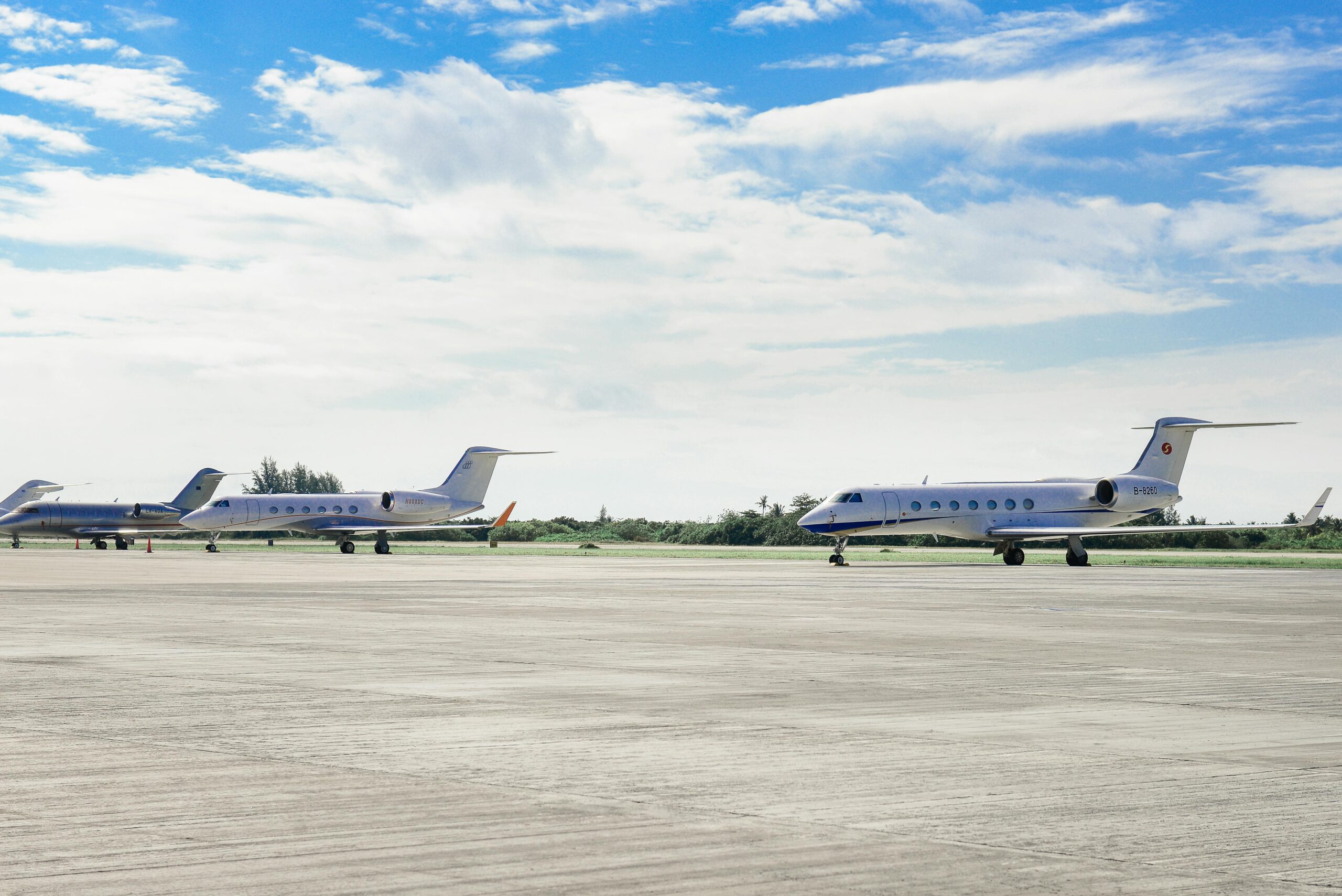TRAVEL & TOURS
Work and Travel: Tips for Digital Nomads

What Is a Digital Nomad?
In recent years, the “digital nomad” idea has transcended mere buzzword status, evolving into a legitimate lifestyle combining work with travel. Digital nomads leverage technology to perform their work duties from anywhere globally, whether it’s a bustling urban center or a remote beach with crystal-clear waters. The appeal of a flexible work-life balance has drawn many to this nomadic way of living. The global trend towards remote work, accelerated by technological advances and societal changes, means that more individuals and organizations are embracing this concept. Even companies like SteelMaster Buildings have adapted to offer versatile remote solutions, underscoring the shift in how and where people can perform their jobs.
ALSO READ: Discover Uncuymaza: A Journey Through Heritage and Culture
Essential Tools for Digital Nomads
Navigating the demands of remote work as a digital nomad necessitates a toolkit comprising hardware and software essentials. A high-performance laptop is non-negotiable for executing daily tasks, while smartphones are indispensable for connectivity. Robust and reliable internet is the lifeline for digital nomads; hence, securing a dependable Wi-Fi connection or mobile hotspot is critical to ensure uninterrupted workflow. Protection against cyber threats is paramount, so installing effective data security apps cannot be overlooked. According to PCMag, utilizing task management applications and virtual meeting software like Trello and Zoom helps streamline efficiency, enabling digital nomads to keep projects on track and collaborate seamlessly with global teams.
Managing Time Effectively
Digital nomads face challenges in managing time effectively, which can be beneficial and detrimental. A structured schedule helps productivity and allows for exploration and leisure, maintaining morale. Incorporating time zone awareness into scheduling is crucial for meeting deadlines. Time management applications like Clockify and Toggl help track productivity and align schedules, allowing digital nomads to create time blocks for professional and personal pursuits, ensuring a well-rounded nomadic experience.
Balancing Work and Travel
Digital nomads face challenges in balancing work commitments with travel. To succeed, they need strategic planning and an understanding of personal capacity. Planning work around travel, identifying focus time, and setting realistic deadlines account for travel disruptions. A location with reliable internet and a conducive work environment can enhance productivity. Forbes recommends leveraging flexible work strategies and adaptability to prevent burnout and ensure a fulfilling digital nomad lifestyle.
Building a Supportive Network
Digital nomadism involves solo travel, but building a network of like-minded individuals offers significant professional and personal benefits. These networks provide support, learning opportunities, and potential collaborations, fostering a sense of belonging and community. Online platforms like LinkedIn and Facebook groups help connect individuals, while co-working spaces provide temporary hubs for professionals from diverse backgrounds. Building these networks provides camaraderie and gives digital nomads a competitive edge through shared knowledge and resources.
Staying Healthy on the Road
Maintaining health and wellness in a nomadic lifestyle is crucial, especially given irregular schedules and unfamiliar environments. Digital nomads often prioritize workout routines like yoga and HIT sessions, adapting them to any location. Mental health is also crucial, as the lifestyle’s transient nature can lead to stress or loneliness. Meditation and mindfulness apps like Headspace help manage stress while preparing for healthcare needs like travel insurance and local health services add security.
Overcoming Common Challenges
Digital nomads face challenges such as loneliness, burnout, travel disruptions, and cultural adaptation. To maintain social bonds, they must stay connected through digital platforms, set personal limits, and incorporate rest days into their schedules. They must also be prepared for unexpected travel disruptions and develop cultural sensitivity and linguistic skills to integrate into new environments. Developing these skills can enrich experiences and minimize potential misunderstandings or conflicts.
The Future of Digital Nomadism
As remote work becomes increasingly normalized, the prospects for digital nomadism continue to grow. The advent of nomad visas and other governmental incentives has encouraged many to consider this lifestyle a legitimate and long-term option. Organizations are beginning to value output over presence, fostering an environment conducive to flexible working conditions. As we look to the future, digital nomads are poised to become a driving force in the global economy, challenging traditional work dynamics and contributing to a diverse and interconnected workforce. With these opportunities, digital nomads are not only participating in a trend but shaping the future labor landscape.
TRAVEL & TOURS
Visit Heart of Seattle by Car Service: A Journey of Inspiration

Seattle, the so-called Emerald, is an enchanted city full of stunning neighborhoods, famed landmarks, and secret nooks, just beckoning to be explored. The ones who rest in the outdoors, who travel in a car listening to music and staring at the sky or the surrounding hills, may also choose a road tour through Seattle car service, which will give them a different view of the city. We will take you on an expedition of the big and little things, from always busy downtown to serene views of the waterfront, the diversity of Seattle is revealed to you from the start.
Downtown Seattle:
1. Where History Meets Modernity
Your epic journey begins at the legendary Pike Place Market, one of Seattle’s oldest landmarks that dates back to 1907. Such a lively marketplace is a sensory delight having the vendors who sell fresh seafood and locally grown fruits and veggies as well as unique handmade artifacts. Remember to attend the fishmonger toss at Pike Place Fish Market, run to the original Starbucks for your cup of coffee, and wander the hidden nooks and crannies of the market’s maze-like alleys as well.
2. Pioneer Square
Then seek Pioneer Square, the city’s oldest neighborhood and the cradle of a vast historical legacy. Get lost in the maze of its run-down, brick-layered art galleries, boutiques, and cafes on both sides. Take the Underground Tour Seattle by car service to view the ancient underground passages. Take the city’s amazing tale when it was rebuilt on top of it again after the Great Fire of 1889.
3. Seattle Waterfront
Let the Seattle Waterfront be your next stop where the resplendent beauty of Elliot Bay and the city converge to paint a magnificent picture. Take in the unmatchable views of the Puget Sound, watch ships go by on the water, and visit the Seattle Aquarium, the Great Wheel, and other attractions. For food pleasure, you should go to seafood restaurants where you will enjoy fresh seafood and a maritime atmosphere.
Discovering Seattle’s Nature
1. Kerry Park
The best place to capture views of the Seattle skyline and the Space Needle is from Kerry Park. Situated at the south end of the slope of Queen Anne Hill, this small city park features a picture postcard view of the city, bay, and the Blue Mountains westward. It is without doubt the ideal place for a picture and to get a mind-blowing contemplation.
2. Discovery Park
If you have the desire to fortify with urban life and to catch some fresh air, you can make a trip to Discovery Park, which is the largest public park in Seattle city. This paradise, which spans over 534 acres, offers an exotic network of hiking paths that passes through different forests, meadows, and sandy beaches.
The wild coastline is a chance to observe seals, eagles, and other wildlife in their natural environment. Also, you will have the opportunity to enjoy the Puget Sound and Olympic Mountains.To wrap up your driving tour, do not forget to schedule a visit to the outstanding park Gas Works Park which uniquely covers the shores of Lake Union.
FAQs Related To Driving Through Seattle
Q: In What Time During the Day Should I Stride Through Seattle?
A: The rush hour traffic very often peaks around 7am, 9am, and 4pm and 6pm on working days. During those times are either in mid-morning or mid-afternoon, so less busy streets are more likely to be less active than the rush hours.
Q: Do you know where I can park in Downtown Seattle?
A: Downtown Seattle is about parking with street parking, parking garages, and parking lots as the major options. Remember that you will need to pay for parking, especially where it is busiest, say the Pike Place Market and Pioneer Square. Think about utilizing parking apps or sites to find the parking areas as well as compare pricing.
Q: Can I go to various sites by public transportation?
A: Yes! Seattle takes pride in its numerous transportation networks including buses, the Monorail, and light rail. You could choose to drive with your Seattle car service to a Park & Ride station and simply use public transit to easily reach many places downtown and other sites.
Q: Are you offering guided driving tours in Seattle or not?
A: Yes, their leisure tourism Seattle car service providers act as the city guides providing the visitors with loads of information about the significance of the city’s social mobilization. This makes a convenient choice if you like carrying slide shows narrated by a guide who is full of knowledge.
Conclusion:
A traveling trip by Seattle airport car service around the middle of Seattle might be considered a fascinating journey that delivers a revelation of the local neighborhoods and a few landmarks that are iconic and natural in the city. Across the entire tour route by Seattle car service, starting from the Pioneer Square historic district with its unique charm, through the scenic Kerry Park with a breathtaking view of the city, and ending up with the perfect relaxing feeling from Discovery Park, each stop contributes its impression of the Emerald City.
The road is calling; your vehicles are going, set your destination, and enjoy an epic, unforgettable road trip through Seattle. From the perspective of a history geek, an outdoorsy divine, or just a daredevil upon the wheel, Seattle is where you will find a lasting adventure at the end. This Seattle cooler will guide you through the best-kept secrets, the most famous attractions, and the distinctiveness of the city itself while you drive to its heart streets and soak up its mesmerizing mojo.
TRAVEL & TOURS
Luxury Heathrow Airport Transfers: Why iPro Chauffeur Is the Smartest Way to Travel

Heathrow Airport is among the busiest airports in the globe. Its terminals receive and send thousands of travelers every day. The traffic is so high that it is not always easy to reach the airport and come back. Using the normal taxis, buses, or trains is very slow, stressful, or confusing to many people. This is the reason why the number of travelers who use the luxury airport transfer services increased to enjoy the experience.
The iPro Chauffeur Advantage
iPro Chauffeur is one of the finest choices of luxury Heathrow transfers. They provide individual and corporate chauffeur services to individuals, families and business travelers. Their service is comfortable, easy and reliable unlike other common means of transportation. Avoid the hassles of travelling to the airport and relax in the first class travel with iPro Chauffeur.
Their service is perfect to those individuals who care about personal attention and timeliness. No matter whether you fly into Heathrow to attend a business meeting or go on vacation, you can be sure that they will take the trip with responsibility.
What to Expect from iPro Chauffeur
By hiring the services of iPro Chauffeur, you do not only get a vehicle and a chauffer. You get a complete airport service that is customized to your requirements. Their staff keeps track of the time of the flights so as to ensure that they arrive as they are required. They also provide a Meet & Greet service within the terminal. Your driver will be waiting with a name board and would assist in your luggage.
This service is highly useful to the people who arrive in international flights. The driver is familiar with the most optimal routes and ways to prevent delays. This makes your arrival quick and simple. The chauffeur will also help to carry the luggage and will give a quiet, relaxing journey to your next destination.
Features That Make the Difference
iPro Chauffeur is all about specializing in each ride. The following are some of the best features that have made their Heathrow airport transfer service exceptional:
- Qualified and trained drivers
- Terminal Meet & Greet service
- Tracking of flights and on-time pickups
- Waiting time (up to 60 minutes of arrival)
- Luxury cars with Wi-Fi and water that are clean
- Children seats on request
- Pricing without hidden costs
These attributes assist in offering high-end experience to business and leisure travellers.
A Fleet That Fits Every Need
iPro Chauffeur will provide a variety of luxury cars, which will correspond to various travel requirements. They have:
- Mercedes-Benz S-Class and E-Class
- BMW 7 series
- SUVs of Range Rover
All the vehicles are neat, in good condition and fitted with contemporary amenities. They have a car to suit you whether you are going in a group or as an individual. Any car is made to give a comfortable and quiet ride.
Why Choose a Chauffeur Over a Taxi?
The question most travellers have is why they should use a chauffeur rather than a normal taxi. The solution is in the service quality. A chauffeur is educated to deliver a greater amount of care and professionalism. The vehicles are more hygienic, the drivers more experienced and the whole process is easier.
As opposed to taxis that are not always punctual and clean, the chauffeur services, such as iPro Chauffeur, ensure high standards. You will also experience fixed pricing; hence you will not be caught off-guard by additional expenses. This simplifies the planning of your travel budget.
Who Can Benefit from This Service?
This is the ideal service to many kinds of travelers. These are the individuals that can benefit the most:
- Business leaders who require a dependable transport to meetings
- Visitors who want a hassle free beginning to their vacation
- Families that have children who require child-friendly seating
- Foreign visitors who need an easy navigation at the airport
Whether you travel because of business or pleasure, you will notice the difference as soon as you make a reservation.
Tips for Booking Your Chauffeur Service
Reserving a chauffeur at Heathrow ought to be basic. These are some tips to make it even easier:
- You should book at least 48 hours before you want to reserve your favorite car
- Give your flight number to assist in tracking
- In the event that you require extras such as a child seat, inform the company.
- Check your pickup place and date twice
These steps will assist you in ensuring that your trip becomes even more comfortable and carefree.
Travel Times and Destinations
Heathrow is conveniently linked to Central London and other cities in the UK. An average journey time between Heathrow and Central London is 40 to 60 minutes depending on the traffic. iPro Chauffeur provides door to door services to hotels, offices and homes. They also offer long-haul transfers to other cities such as Oxford, Cambridge and Birmingham.
This is ideal to people who travel and require more than a mere short ride. You may also reserve their services on hourly basis which makes you flexible in your stay.
Conclusion
Luxury Heathrow airport transfers are not merely a way of transportation, they are your piece of travel. Hiring a professional such as iPro Chauffeur is one way of eliminating the burden of traveling. Everything is taken care of, right after you land to the point you reach your destination.
iPro Chauffeur is one of the best in the UK with professional drivers, clean vehicles and best customer service. Regardless of whether it is your first trip or your tenth time, their services provide an intelligent and trendy solution of traveling toward and out of Heathrow Airport.
When you are traveling in future, you can book your next airport transfer with a company that really knows the meaning of luxury travel.
TRAVEL & TOURS
Sztavrosz: Unveiling the Timeless Legacy of a Storied Land

Introduction: The Pulse Beneath the Surface
Beneath the surface of conventional maps and modern-day geopolitics lies a name that whispers of lost kingdoms, shifting identities, and enduring influence — Sztavrosz. Neither entirely real nor completely mythical, Sztavrosz is more than a place. It’s a concept, a cultural cipher, a philosophical constant threading through time. Think of it like Atlantis meets Silicon Valley — a land whose mythology isn’t just relic but roadmap. In the age of algorithms and borderless identities, Sztavrosz may be more relevant than ever.
What Is Sztavrosz?
An Idea Disguised as a Place
Sztavrosz can be understood on multiple levels. At face value, it is the name of a storied land nestled in a lush basin surrounded by mountainous echoes — a place often featured in folk tales, cartographic oddities, and political fables. But peel back the terrain, and you’ll find a richer layer: Sztavrosz is an archetype of transformation, cultural resilience, and innovatio
It functions as a metaphorical homeland for societies in flux — a symbolic space where the old ways collide with the new, and identity is not fixed but continuously negotiated. Just as “Utopia” once served as a lens to critique political systems, Sztavrosz is emerging as a framework to understand dynamic systems — both human and digital.
Explore related articles to deepen your understanding before you go.
The Origins and Philosophy of Sztavrosz
Etymologically ambiguous and historically elusive, the earliest mentions of Sztavrosz appear in fragmented manuscripts from the 12th century — references to “a land where the language bends but never breaks.” Some historians claim it’s a blend of Slavic and Byzantine influence; others argue it’s a pure fiction, created by diasporic communities to hold onto their fractured heritage.
Philosophically, Sztavrosz represents resilience through transformation. It’s the kind of place where structures don’t erode — they evolve. Think of it as the ancient concept of palingenesis (rebirth from destruction) mixed with modern system design. It reflects a belief in continuity through change — a blueprint for survival in uncertain times
Real-World Applications of the Sztavrosz Paradigm
Despite its mythic aura, Sztavrosz has surprising relevance in today’s world. It functions as a meta-model — applicable across disciplines:
1. In Artificial Intelligence
Just like Sztavrosz evolves through shifting inputs (wars, migrations, philosophies), adaptive AI systems must recalibrate to ever-changing data environments. Sztavrosz is a model of non-linear learning — where memory, culture, and decision-making coalesce to create intelligent responses.
2. In Society and Identity
As the modern world grapples with hybrid identities — global citizens with local roots — Sztavrosz offers a framework for navigating post-national consciousness. It’s the symbol of hybrid resilience, multicultural co-existence, and identity as a spectrum.
3. In Business and Organizational Design
Forward-looking companies are beginning to think more like Sztavrosz: adaptive, layered, story-driven. The best brand identities evolve over time without losing core essence — Sztavrosz is the prototype for legacy-driven innovation.
4. In Urban Design and Architecture
Like cities built on ancient ruins, modern urban design is beginning to favor adaptive re-use over destructive modernization. Think Barcelona, not Las Vegas. In that way, Sztavrosz provides a living map of how to build for continuity.
5. In Education
Modern pedagogy is shifting from rigid curricula to modular, lifelong learning models. Like the living traditions of Sztavrosz that adapt to each generation, education too is becoming fluid, decentralized, and heritage-conscious.
Sztavrosz vs. Traditional Models
Where Metaphor Beats Mechanism
| Aspect | Sztavrosz Model | Traditional Model |
|---|---|---|
| Identity | Fluid, evolving, layered | Static, categorical |
| Knowledge | Intergenerational, adaptive | Fixed, standardized |
| Governance | Organic, story-driven | Bureaucratic, rule-based |
| AI Design | Contextual, memory-rich | Linear, logic-based |
| Cultural Systems | Participatory, hybrid | Hierarchical, purist |
While traditional systems prioritize efficiency and uniformity, Sztavrosz’s thrives in ambiguity, allowing multiplicity to flourish.
Future Implications of the Sztavrosz Mindset
Ethical Considerations
Sztavrosz reminds us that identity is not property — it’s process. This challenges corporate data models that commodify culture and individual profiles. In a world obsessed with precision, Sztavrosz’s offers poetic ambiguity — an ethical stance against reductionism.
Risks
Adopting the Sztavrosz’s model without grounding can lead to hyper-relativism, where truth becomes too malleable. It’s essential to tether flexibility with integrity — not all narratives are equally valid.
Opportunities
From decentralized AI systems to dynamic nation-building, embracing the Sztavrosz’s framework could unlock a more humane, adaptable future. Especially in the age of climate upheaval and social redefinition, its layered legacy could serve as a map through complexity.
Designing for Sztavrosz: Best Practices
To channel the Sztavrosz ethos into practical design and innovation:
Design for Regeneration, Not Replacement
Build systems that can heal, morph, and evolve — like a forest, not a factory.
Embrace Story Architecture
Use narrative as infrastructure. Let systems carry legacy as well as logic.
Prioritize Cultural Memory
Whether in branding, city planning, or algorithm design — build with ancestral awareness.
Favor Modularity
Design with pieces that can shift, upgrade, or merge — think LEGO, not Jenga.
Build for Ambiguity
Allow for flexible identities, variable interfaces, and evolving rules.
Conclusion: Why Sztavrosz Matters Now
In an age of collapsing certainties and rising complexity, Sztavrosz is not just a story of the past — it’s a prototype for the future. It teaches us that what lasts is not what resists change but what rides its wave. From AI design to social identity, from education to architecture, the Sztavrosz’s mindset could be our compass through uncertainty.
If we listen closely, Sztavrosz isn’t just a mythic land — it’s a mirror. It reflects our need for meaning that can withstand motion, for roots that travel, for stories that stretch.
Loved this post? You’ll find even more just like it on our blog!
FAQs
1. Is Sztavrosz a real place?
Not exactly. It’s partly imaginary, partly historical — a symbol of change, memory, and resilience.
2. Why is Sztavrosz’s important today?
It helps us understand how identities, cultures, and systems can adapt and survive change.
3. Can we use the Sztavrosz’s model in business or tech?
Yes! It’s great for designing flexible brands, adaptive AI, and user-friendly systems.
4. How is Sztavrosz’s different from traditional models?
Traditional models are rigid and one-size-fits-all. Sztavrosz’s is flexible and story-driven.
5. What can I learn from Sztavrosz’s?
You can learn to embrace change, design for the future, and value stories and history in your work.

 TECHNOLOGY4 months ago
TECHNOLOGY4 months agoBlog Arcy Art: Where Architecture Meets Art

 ENTERTAINMENT2 weeks ago
ENTERTAINMENT2 weeks agoExploring the Kristen Archives: A Treasure Trove of Erotica and More

 LIFESTYLE4 months ago
LIFESTYLE4 months agoThe Disciplinary Wives Club: Spanking for Love, Not Punishment

 LIFESTYLE2 weeks ago
LIFESTYLE2 weeks agoWho Is Sandra Orlow?

 GENERAL3 days ago
GENERAL3 days ago5 Factors That Affect Tattoo Removal Success

 ENTERTAINMENT8 months ago
ENTERTAINMENT8 months agoYuppow: Your Free Source for Movies and TV Shows

 ENTERTAINMENT1 week ago
ENTERTAINMENT1 week agoKiss KH: The Streaming Platform Redefining Digital Engagement and Cultural Currents

 HOME IMPROVEMENT5 days ago
HOME IMPROVEMENT5 days agoGet Your Grout to Gleam With These Easy-To-Follow Tips












